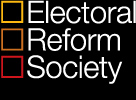Electoral Reform Society
|
|
Candidate selections reflect the barriers for women in politics
Last week, all UK political parties confirmed which candidates they were standing in each constituency for the 2024 general election. Including independents, a total of 4,515 candidates will be fighting for a seat in the next government.
If you’ve already tried out our candidate name game, you’d have seen how the most common name was David, owned by a whopping 104 candidates. The Johns came in second with 84 candidates called by this name, and the Pauls a close third with a total of 79.
In fact, when tallying up the most common candidate names, we noticed the top 10 in the list are all male names. It is not until reaching position 11 that you come across the female name Sarah, owned by 43 candidates. Of course, this could be due to women having more diversity in their names. However, it is less easy to dismiss that out of the 4,515 candidates standing, only 31% are women.
We can reach parity sooner with quotas
We strongly believe that women’s equal representation in government matters. Who better to ensure the crucial perspectives of women, making up 51% of the UK population, are equally considered in what has always been a male dominated space? Yet, as covered in depth in our recent report, Pursuing Parity, the only way to guarantee consistent representation in elected governments is through the use of legislated gender quotas.
The wide variation in the proportion of women candidates selected across the UK parties for the upcoming general election tells us why. For the Conservatives, 34% of candidates selected are women. Labour almost achieve gender parity in their selection, with 47% of their candidates being women. The Greens also achieve a near equal split with 45%. Women make up 39% of the SNP’s candidates. Plaid Cymru and the Liberal Democrats have selected 31% and 29% women candidates respectively. For Reform UK, women make up only 16% of their candidates*.
It is a great sign that Labour and the Greens have come close to equal split in their selection. However, it is also difficult to point at progress when the total percentage of women candidates standing in this election is lower than the 35% of women currently represented in the Commons. This point emphasises how gender parity should not be reliant on which political party has the most support at any one time. As seen in the Welsh Senedd since 2003, backsliding can happen.
Why First Past the Post can disadvantage women
Another concern is that first past the post adds yet another layer of difficulty in getting women into Parliament. Due to ‘safe seats’, a feature embedded in this electoral system, it potentially allows parties to place their women candidates in seats they unlikely to win.
With Labour having selected candidates with a near 50:50 balance of men and women and looking strong in the polls, it is likely we will see more women MPs elected than in 2019. Although this would be an excellent outcome for diversity, it is essential to keep in mind that, without quotas, the success could be short lived. Short term shake-ups to usual trends do not guarantee enduring representation in our democracy. A change to our electoral system would.
*Disclaimer: Percentages were calculated by the ERS and are an approximation. We collated and analysed data from sources which are publicly available. Given the lack of formal statistics around candidates and elected representatives’ diversity we have had to make some assumptions around gender, basing these assumptions on names, images and pronouns. Some candidates could not be identified based on these methods and were classed as ‘unknown’, meaning true numbers may vary slightly.
Original article link: https://www.electoral-reform.org.uk/candidate-selections-reflect-the-barriers-for-women-in-politics/
|
Building a Better Democracy |
Tweets by electoralreform | ||||||
|
|||||||



.png)